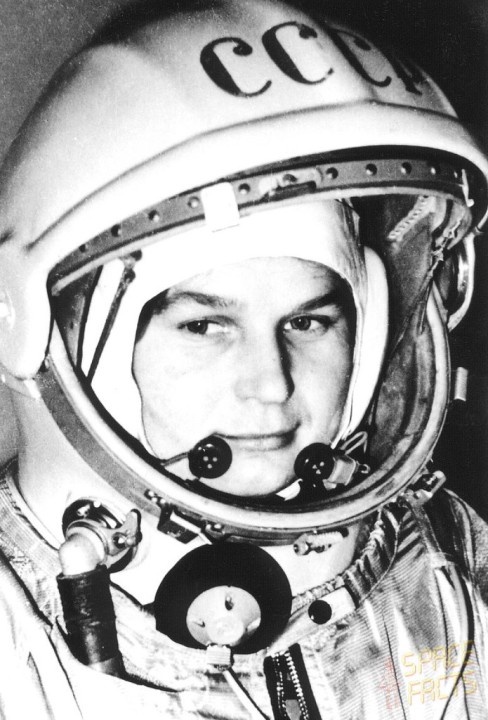Today, as a Woman, You Can Do Anything, But You Must Not Do Anything!

June 16th, 1963: Vostok 6, with Valentina (Valia) Tereshkova on board, was launched in space. The first, the youngest (only 26) and the only woman who has ever flown in space on a solo mission. Whau!
At that time, me and my identical twin sister were still in the belly of my mother, fighting who will be the first one out to discover the world …. Well, in case you are curious, I kicked her out on an exploration mission.
Tereshkova volunteered in 1961 for the cosmonaut program and was accepted although she had no pilot training. However, she was already an accomplished amateur parachutist. Her Vostok 6 mission lasted just under three days (two days, 23 hours, and 12 minutes). With a single flight, she had logged more flight time than all the US Mercury astronauts who had flown to that date combined. [1,3]
Nevertheless, it cannot be that a woman achieves greatness without the world doubting the genuineness of her achievements. Tereshkova’s flight was for a long time surrounded with some mystery e.g., insinuations that she had been too ill to conduct the planned tests and even hinting that she had challenged orders. There is no evidence suggesting that she was more ill than anybody else (a man) could be expected to be in the given circumstances. She maintained a flight log and performed various tests to collect data on her body’s reaction to spaceflight. Her photographs of Earth and the horizon were later used to identify aerosol layers within the atmosphere. [2]
However, she did challenge orders and she had a very good reason to do so. She discovered very soon after lift-off that the settings for re-entry were incorrect, to the point where she would have sped into outer space, rather than back to Earth. She was eventually sent new settings but had to keep this a secret for 30 years, until the man who made the mistake was dead. [2]
Some months ago, I came across an interesting article mentioning Tereshkova to support the claim that Soviet Russia had a better record of training women in STEM than America does today. The article (based on Roshanna Sylvester contribution at the Russian History Blog) is citing a letter from a girl from Ukraine to Yuri Gagarin. Inspired by Tereshkova’s flight, the girl is confident that even she (as she puts it “a simple village girl”) will be able to fly to the cosmos if receiving the same training as Valia Tereshkova did from Gagarin. In contrast to this, in a letter to John Glenn, an American girl wrote that she would very much like to become an astronaut, but since she is a 15-year-old girl, she fears it would be impossible.[4]
When reading this, I had to think about something Fintje Moerman (Flemish Minister of Economy, Innovation, and Science 2004-2007) said some years ago in a magazine interview: “If I were a man, I would live in a society that was written to my size. Men still set the standard. As a result, they also must face greater social pressure. Today, as a woman, you can do anything, but you must not do anything. The disadvantage is that you must find the drive in yourself. I sometimes miss that in young women. Legally, there is no longer any obstacle and yet they do not seize all opportunities” (free translation from Dutch). [5]
Growing up in the Communist Eastern Europe, I never understood why women here in the Democratic West are often putting limits to themselves and their own professional choices. Women have been for too long pictured and praised only as the perfect mothers and household wives. I guess it was just very convenient (and economically beneficial) to let women do most of the unpaid household work and children and parents’ care. I doubt it really proved very beneficial in the long term to lose the talents of 50% of the population.
It is not that there was no sexism in the Communist Eastern Europe at the time. My mother still did most of the cooking and cleaning, while my father was reading the newspaper. There was of course quite some “mansplaining” too [6]. However, all the mothers were working. My mother could travel for meetings and conferences abroad, while my father was taking care of us. In fact, I did not know anybody whose mother did not work. I never felt that, as a woman, I was limited in my study and career choices and certainly, I did not feel that “hard sciences” and technology are not for me but only for men. My father encouraged me and my sister to study mathematics since he believed this would open many doors for us professionally. It did, indeed!
Tereshkova’s father was a tractor driver and her mother worked in a textile factory. Interested in parachuting from a young age, Tereshkova began skydiving at a local flying club, making her first jump at the age of 22 in May 1959. At the time of her selection as a cosmonaut, she was working as a textile worker in a local factory [1], but this did not stop her to pursue her dream! And it did not stop her to be a mother either!
Sources:
ESA - First woman in space - Valentina Tereshkova ([1])
Valentina Tereshkova: ‘People waste money on wars ([2])
Valentina Tereshkova ([3])
Soviet Russia Had a Better Record of Training Women in STEM Than America Does Today ([4])
Wat als ik een man was geweest? ([5])
Mansplaining ([6])
